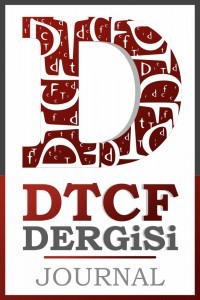Osmanlılarda İktidarın Değişim Süreci Ve Meşruiyet Sorunu
Osmanlı devlet anlayışına göre, Osmanlı hükümdarının yüklendiği misyon "Padişâh-ı ruy-ı zemin zillullah-i fi'l-arz" Allahın yeryüzündeki gölgesi biçimiyle eski Türk hakimiyet anlayışı ve İslam geleneğinin tezahürüdür. II. Mehmed'den itibaren bu kavram Osmanlı kanunnamelerine de yansımış ve hukukî bir nitelikte kazanmıştır. Hükümdar, tahta geçtiği andan itibaren Allah'ın adaletini insanlığa dağıtan kutsal kişi kimliğini üstlenmiş olmaktadır. Bundan dolayı tahta geçen yeni hükümdara karşı kardeşlerinin veya hanedan üyesi olduğunu iddia eden sahte hanedan üyelerinin girişimleri gelenek ve hukuk açılarından kutsal sayılan Osmanlı hükümdarına, dolayısıyla merkezi otoriteye, karşı isyan hareketleri olarak değerlendirilmelidir. Bu isyanlara destek verenler de merkezî otorite tarafından dışlanan yada isteklerini merkeze bu yolla iletme çabasında olan muhalif isyancı gruplardır.
Anahtar Kelimeler:
Devlet, Hükümdar, Sahte Şehzadeler, İsyanlar, Taht Kavgaları
According to the Ottoman state tradition, the prerogative and political powers exercised by the Ottoman Sultan reflected the Turkish concept of monarchical an Islamic tradition, which was furnished by the image of his being 'the light of God's countenance on earth'. Since Mehmed II this concept took place in the Ottoman Code of Laws Kanunname and included a legislative nature as well. in the course of his reign, the Ottoman Sultan possessed a combination of great weight and value as the ultimate trustee of the reights of the sovereing people and the representative of the body of laws, statutes and customs. He was assumed to exercise both the prerogatîve and and the executive powers in the name of God since the moment he ascended the throne. Therefore, any interruptions by his prince brothers or other members of the Royal line were labelled as rebellious acts of rival claimants against the principle of hereditary norarchy and the central authority in the divine personality of the Ottoman Sultan. The persons who engaged in the acts of intervening the Ottoman prescriptive and automatic succession were generally the opposition groups who hoped to express their desires to the central authority in such an interrupting way.
Keywords:
State, Monarch Sovereing's Throne, The Ottoman Sultans, The Alternative Arranged Candidates (Prince) to The Ottoman Throne, The Ottoman Royal Line, The Imperial Ottoman House,
- Yayın Aralığı: Yılda 2 Sayı
- Başlangıç: 1942
- Yayıncı: Ankara Üniversitesi
Sayıdaki Diğer Makaleler
"Passage de Milan "da İç-Anlatı Yöntemi Ve Metinler Arası İlişkiler
John Locke ve George Berkeley'in Kesin Bilgi Anlayış
Natural Imagery and the Construction of a New Femininity in HJD.'s Early Verse
Modern İngiltere'nin İlk Dönemleri Ve Kültür Temsilcileri Olarak Shakespeare Kadınları
Ağustos 1999 Depremi'nin Yunan Milli Kimliğinin 'Öteki' İmajı Üzerinde Yarattığı Sarsıntı.
Textarbeit im Konversationsunterricht
